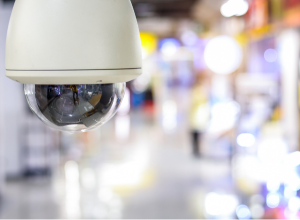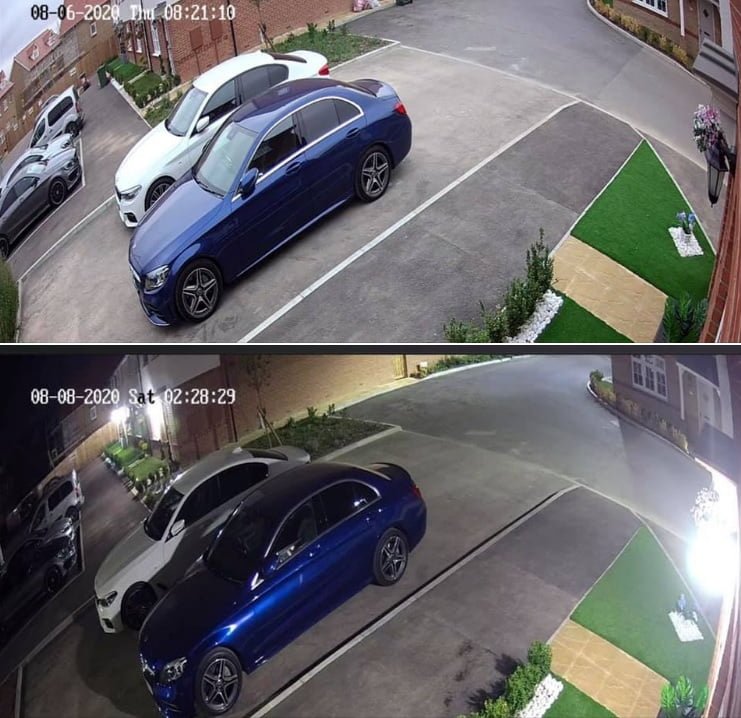Security in nursing homes
Nursing home security

Security in nursing homes: why CCTV systems are essential
As of 2020, the UK has over 490,000 people living in nursing homes and, for most families who chose this care option for their elderly loved ones, the decision wasn’t an easy one. But, with more than 40% of people aged 65 or over having a limiting long-term illness or disability, it’s sometimes the right call for that loved one’s long-term health and wellbeing because elderly people who live alone are at a higher risk of health complications, accidents, isolation, and loneliness.
Considering the emotional weight of the decision, it’s not exactly surprising that families hold nursing homes to a very high standard, including when it comes to on-site security. They want their loved ones to feel as comfortable as they would at home but also to be safe 24/7, so CCTV systems are a must. It’s up to the management of each care facility to establish a security policy, but, in general, the consensus is that nursing home CCTV systems should always be installed outside the property and in shared indoor areas. Then, depending on the health conditions of the residents and on the family’s preferences, cameras may also be installed in separate rooms.
Why security in nursing homes matters
Security is one of the top concerns for families who admit their loved ones to a nursing home, so having state-of-the-art CCTV systems in place could have a measurable impact on your facility’s reputation. What’s more, these systems are critical for residents’ safety. Here’s why:
Keep track of who comes and goes.
One of the most common reasons why people don’t want to live in a nursing home is that they don’t want to feel like they’re trapped in jail. However, that’s not what modern nursing homes want to be. On the contrary, nursing care facilities want residents to feel as if they’re at home, and they actually encourage visits because they help them maintain an active social life and connections with their loved ones. With CCTV systems, you’ll know exactly who comes and goes without having to resort to obtrusive security measures. The ideal location for a CCTV system is right next to the reception because you can get a clear idea of who enters and exits the property, but cameras can also be installed in other access points. This way, residents are protected without feeling as if they’re locked in when they receive a visit. During the COVID-19 pandemic, CCTV systems are also useful for checking that visitors and staff respect health and safety guidelines when they enter the property. To further increase security in nursing homes, you can also install state-of-the-art entry systems and alarms.
Prevent theft
Although any respectable nursing home goes to great lengths to background check its staff, risks can’t really be eliminated completely and keeping a facility running without surveillance equipment is detrimental both to the residents and the facility. This is where CCTV systems come in. First of all, the very presence of cameras on-site helps. Thieves are looking for easy targets, so if they know they’re being monitored, they’re less likely to attempt anything. Secondly, if someone does steal something, a CCTV system makes it easy to identify the wrongdoer, which is why you should have one installed in stockrooms and supply closets. Even if you’ve never had problems with employee theft, CCTV systems remain an essential investment in nursing homes. Unfortunately, some people take advantage of the fact that many residents are confused and have memory problems, but video surveillance can stop them in their tracks.
Prevent residents with dementia from wandering off
Neurodegenerative conditions such as dementia is one of the primary reasons why families decide to admit their elderly relatives to a nursing home. In the UK, it is estimated that around 850,000 people are living with dementia, and most of them are over the age of 50. A third of these are living in a nursing home, but experts estimate that their number will increase in the future. In total, up to 70% of nursing home residents have some sort of memory problem that requires close surveillance.
Caring for a person with dementia is particularly difficult – not only because it takes an emotional toll on the family but also because people with dementia often wander off and put themselves in dangerous situations. According to the Alzheimer’s Association, this disease causes people to become confused about their location (including in the early stages of the disease), which is why six in 10 people with Alzheimer’s wander off at least once. Common destinations include past workplaces, former homes, or places they used to love when they were younger, but patients often become disoriented and wander off to dangerous or high-traffic areas. When families send loved ones with Alzheimer’s other forms of dementia to nursing homes, they want the peace of mind that this won’t happen. Since it’s impossible to have one nurse per resident, CCTV systems are essential for preventing these vulnerable patients from wandering off, both inside and outside of the facility. In some cases, the family may also want the facility to install surveillance cameras inside their loved one’s room.
Easily monitor large facilities.
If you run a larger facility, it’s impossible for security staff to monitor everyone personally, but this is where CCTV systems come in. With their help, authorised personnel can monitor all facility areas remotely and intervene as soon as they’re needed. Meanwhile, security staff can be assigned in common areas or in areas with more vulnerable patients, who need closer surveillance. This way, you’re maximising the productivity of human workers without neglecting the overall security of the facility.
Recent Posts
Why Analytical CCTV is Essential for Reducing Retail Theft
Why Analytical CCTV is Essential for Reducing Retail Theft Retail...
Atlas Road – Bus Garage – IP CCTV Installation
Atlas Road – Bus Garage – IP CCTV Installation Atlas...



